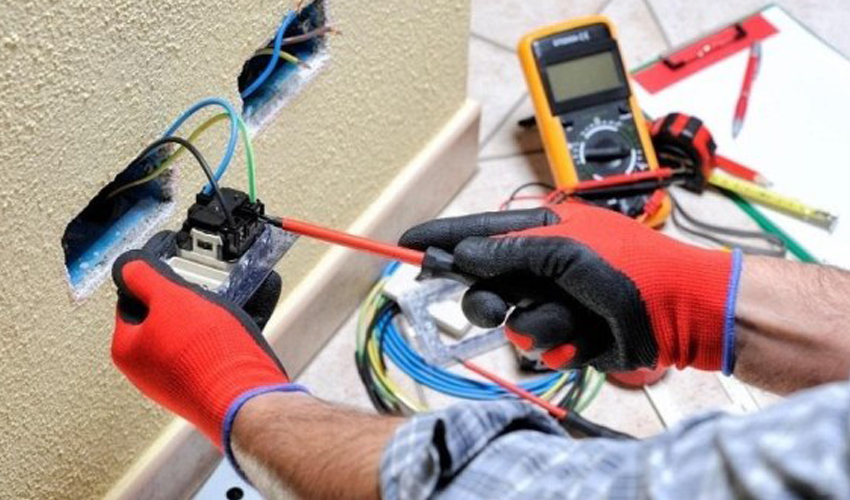Introduction
Electrical contractors play a crucial role in ensuring that electrical systems in homes, businesses, and industrial facilities function efficiently and safely. Whether you are planning a new construction project, renovating an existing property, or simply need electrical maintenance or repairs, choosing the right electrical contractor is essential. In India, a country with diverse electrical infrastructure and regulations, the process of hiring an electrical contractor can be particularly challenging. This article aims to guide you through the key factors to consider when hiring electrical contractors in India.
I. Licensing and Certification
One of the primary factors to consider when hiring an electrical contractor in India is their licensing and certification. Electrical work is highly regulated, and contractors must possess the necessary licenses and certifications to operate legally. Here’s what to keep in mind:
License Verification: Ensure that the contractor holds a valid electrical contractor license issued by the appropriate state or municipal authority. Verify the license’s authenticity with the issuing agency.
Electrician Certification: Additionally, check if the electricians employed by the contractor are certified by relevant agencies or trade associations. Certified electricians are more likely to have the knowledge and skills needed for safe and high-quality work.
II. Experience and Expertise
The complexity of electrical systems varies across different projects, from residential wiring to industrial installations. It’s crucial to assess the contractor’s experience and expertise in the specific type of work you require:
Project Portfolio: Request examples of similar projects the contractor has completed in the past. A well-established portfolio can provide insights into their capabilities.
References: Ask for references from past clients and contact them to inquire about their experiences working with the contractor. This can reveal the contractor’s reliability and professionalism.
Specialization: Determine if the contractor specializes in the type of electrical work you need. For instance, some contractors may focus on residential projects, while others excel in industrial or commercial installations.
III. Safety Measures and Compliance
Electrical work carries inherent safety risks, and compliance with safety standards and regulations is paramount. Consider the following:
Safety Protocols: Inquire about the contractor’s safety protocols and practices. Ensure they follow industry-standard safety measures to protect workers and property.
Compliance with Codes: Verify that the contractor is well-versed in the Indian Electrical Code (IEC) and other relevant local electrical codes. Compliance with these codes is essential for safe and legal installations.
IV. Insurance Coverage
It’s crucial to confirm that the electrical contractor carries adequate insurance coverage. Insurance protects both you and the contractor in the event of accidents, property damage, or injuries during the project:
Liability Insurance: Ensure the contractor has general liability insurance to cover any damage to your property or third-party property.
Workers’ Compensation: Verify that the contractor provides workers’ compensation insurance for their employees. This coverage is essential in case a worker is injured on your property.
V. Quality of Materials and Equipment
The quality of materials and equipment used in electrical installations can significantly impact the system’s performance and longevity:
Materials and Brands: Inquire about the brands and types of electrical materials and components the contractor intends to use. Reputable contractors use high-quality materials to ensure reliability and safety.
Equipment and Tools: Assess the contractor’s equipment and tools. Modern and well-maintained equipment can contribute to efficient and accurate work.
VI. Project Timeline and Communication
Clear communication and adherence to project timelines are essential for a successful electrical project:
Project Timeline: Establish a realistic project timeline and ensure the contractor can meet your deadlines. Delays can be costly and disruptive.
Communication: Maintain open and transparent communication with the contractor. Address any concerns or changes promptly to avoid misunderstandings.
VII. Pricing and Contract Details
Finally, consider the pricing structure and contract details before hiring an electrical contractor:
Detailed Quote: Request a detailed written quote that outlines all costs, including materials, labor, and any additional charges. Compare quotes from multiple contractors to ensure fairness.
Contract Terms: Review the contract carefully, paying attention to terms and conditions, payment schedules, and warranties. Seek legal advice if necessary to understand the contract fully.
Conclusion
Hiring the right electrical contractor in India is a critical decision that can impact the safety, efficiency, and reliability of your electrical systems. By considering factors such as licensing, experience, safety measures, insurance coverage, materials and equipment, project timelines, communication, pricing, and contract details, you can make an informed choice that ensures a successful electrical project. Remember that thorough research and due diligence are essential to finding a trustworthy and qualified electrical contractor who can meet your specific needs and deliver high-quality results.


Ruffer
There are many different types of roofing materials to choose from, including asphalt shingles, Metal roofing, wood shakes, clay tiles, and slate. Each material has its
Ruffer
Roofing materials to choose from, including asphalt shingles, Metal roofing, wood shakes, clay tiles, and slate. Each material has its
Ruffer
There are many different types of roofing materials to choose from, including asphalt shingles, Metal roofing, wood shakes, clay tiles, and slate. Each material has